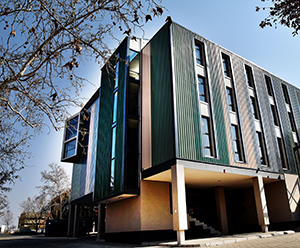Latest News Archive
Please select Category, Year, and then Month to display items
04 April 2024
|
Story Lunga Luthuli
|
Photo SUPPLIED
 Dr Juliet Kamwendo champions gender-inclusive climate action in Africa. Her expertise at the recently held AFR100 workshop highlighted vital steps towards sustainable and equitable development.
Dr Juliet Kamwendo champions gender-inclusive climate action in Africa. Her expertise at the recently held AFR100 workshop highlighted vital steps towards sustainable and equitable development.
Dr Juliet Kamwendo, Lecturer and Programme Director for Gender Studies in the Centre for Gender and Africa Studies at the University of the Free State, is spearheading efforts to integrate gender considerations into Africa's climate restoration agenda. Reflecting on her involvement, Dr Kamwendo stated, "This is particularly crucial, as women make up almost 50% of the population in Africa, and the depletion and degradation of land affect them disproportionately."
She recently served as a gender expert at the AUDA-NEPAD AFR100 workshop in Ouagadougou, Burkina Faso, from 25 to 29 March 2024. This initiative aims to restore forests and degraded land across Africa by 2030, with a focus on gender equality.
The workshop emphasised the integration of gender perspectives into the AFR100 project, acknowledging the disproportionate impact of land degradation on women. Dr Kamwendo's expertise highlighted the need to empower women in climate change interventions, addressing existing gender inequalities exacerbated by environmental degradation.
“Women – who are primarily responsible for household food security and water provision – bear the brunt of environmental degradation, leading to increased workloads, reduced income opportunities, and heightened vulnerability to climate-related disasters. Furthermore, the loss of forest cover and biodiversity further exacerbates the challenges faced by women, particularly in rural areas where they depend heavily on natural resources for their livelihoods,” added Dr Kamwendo.
Her participation highlights academia's crucial role in fostering inclusive and sustainable development, emphasising interdisciplinary collaboration to tackle complex environmental challenges. Through initiatives such as AFR100, stakeholders are working towards a more resilient and gender-responsive future for Africa.
Expansion to Physics building officially opened on Bloemfontein Campus
2016-05-06

The newly-opened addition to the Physics Building on the Bloemfontein Campus.
Photo: Charl Devenish
|
An extension to the Department of Physics at the University of the Free State (UFS) was officially opened on the Bloemfontein Campus on 20 April 2016.
“This started off about five years ago when we were talking about not having enough room for large classes. Prof Matie Hoffman suggested that we build a large lecture room on our parking space,” said Prof Hendrik Swart, Professor in the Department of Physics as he addressed guests at the official opening ceremony.
“A year later, we received a Sarchi Research Chair [South African Research Chairs Initiative] on Advanced and Luminescent Materials. We needed more office and laboratory space. The two ideas were combined and presented to the university’s senior management,” he added.
When the university was founded in 1904, Prof James Lyle was appointed to head up the Physics and Chemistry departments. Five years later, a single room was allocated for the Physics laboratory in the main building upon its completion. In 1947, the old Physics building was designed and constructed. Fast forward 69 years, the department has reached another milestone. Facilities accommodated by the expansion include a new telescope for astrophysics experiments, a basement for storing old equipment, as well as a sliding trap door which allows heavy goods to be elevated into the building from the ground floor. The telescope is one of the many unique features of the building given its capacity to expose graduate students to the basic techniques of radio astronomy, especially in light of the fact that the SKA (Square Kilometre Array) project which is in progress.
“Our department is extremely strong at this stage, and a bright future lies ahead,” said Prof Koos Terblans, the Head of Department. The opening also served to celebrate the 103 publications achieved by the department last year.
Dr Lis Lange, Vice-Rector: Academic is proud of the heights reached by the department to date. “The Department of Physics is undoubtedly one of the jewels in the crown of our university, and we are very proud of its developments. Universities are built on legacies, and they are also about change, which is what this department has been demonstrating.”
The expansions to the building with its top-class facilities, was constructed at a cost of R25 million – an infrastructure grant courtesy of the Department of Higher Education and Training.